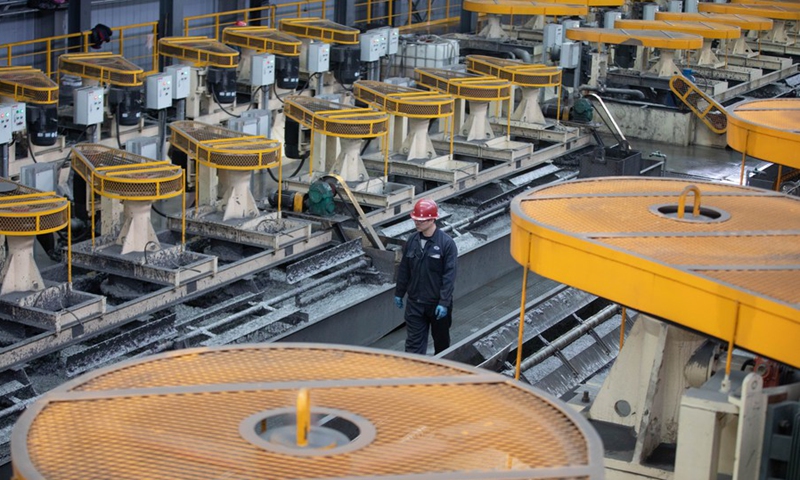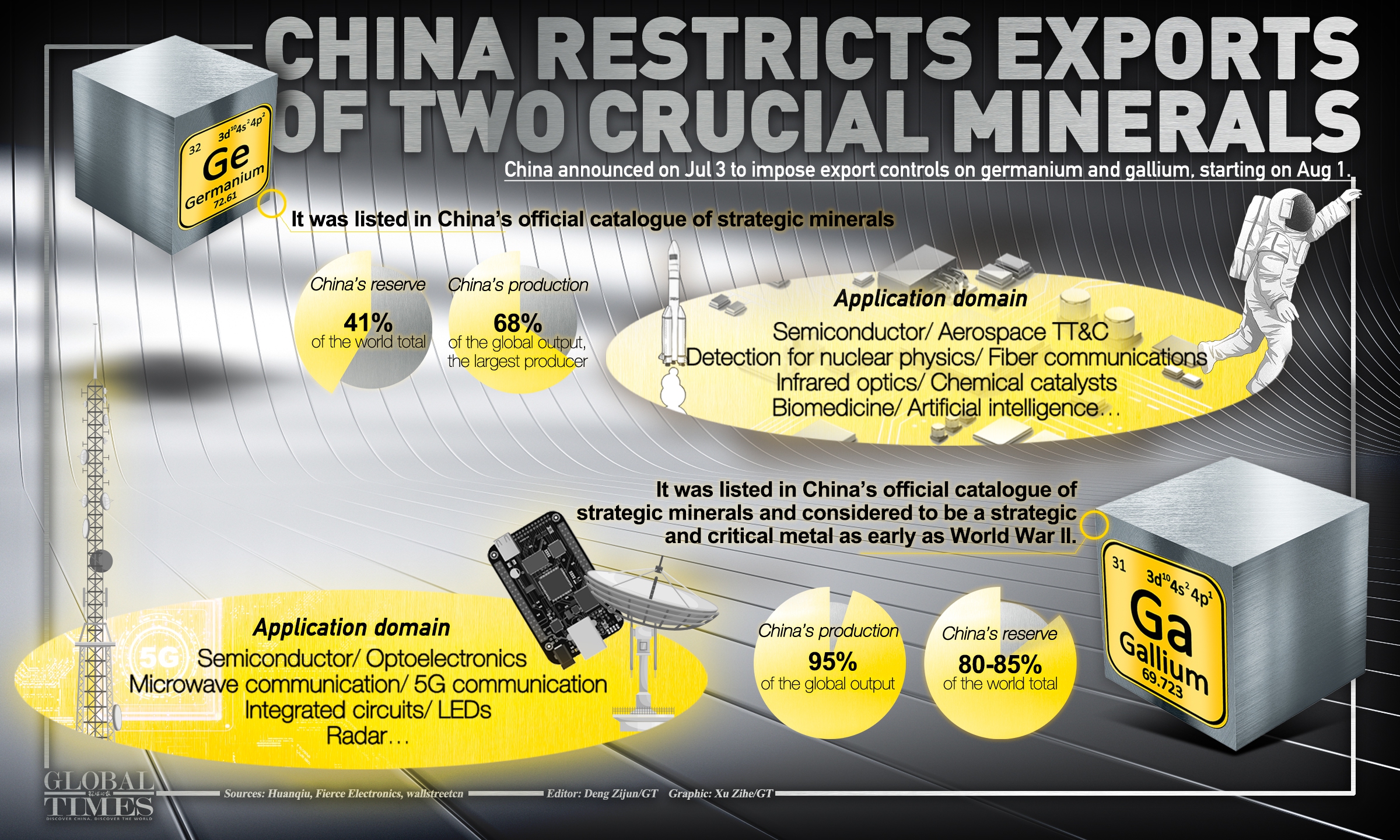China strengthens export controls on graphite, a vital material for EV batteries, to protect national security
Experts see move as necessary to protect China's industry supply chain safety amid US’ escalating tech crackdown

A man works in a workshop of a graphite company in Jixi City, northeast China's Heilongjiang Province, March 24, 2023.(Photo: Xinhua)
China on Friday optimized export controls on some categories of graphite, a key material in electric vehicle batteries, in a move aimed at safeguarding national security and interests. Experts argue that the move is crucial and necessary to safeguard the stability of China's supply chain in the face of the escalating crackdown and restrictions on China's high-tech sector from the West.
China's General Administration of Customs and Ministry of Commerce (MOFCOM) on Friday jointly issued a notice imposing export controls on certain kinds of highly sensitive graphite items, a key material used in batteries for electric vehicles.
Under the new measures, China will require exporters to apply for permits to certain highly sensitive graphite items, effective from December 1. China is the world's largest producer and exporter of graphite.
The types of highly sensitive graphite items had already been under temporary controls, the MOFCOM said, and are now being made official. Meanwhile, temporary controls over five types of low-sensitivity graphite items, which are primarily used in downstream industries such as steel, metallurgy, and the chemical industry, have been lifted.
The implementation of export controls on specific graphite items is a common international practice. China's move is a regular adjustment to better safeguard its national security and interests and does not target any specific country or region, MOFCOM said in a statement.
The move comes after the Chinese government recently conducted a comprehensive assessment of temporary control measures covering graphite items, in accordance with the Export Control Law, and made a decision to make the optimization, according to the statement.
The measures were announced as the West increases its pressure on Chinese companies.
On Tuesday, the US further tightened export restrictions on artificial intelligence-related chips and semiconductor manufacturing equipment to China, and added a number of Chinese entities to the "entity list" for export controls.
The European Union is also weighing levying tariffs on Chinese-made EVs, which it said are benefiting from state subsidies.
As the West continues to intensify its containment efforts against China, critical materials for high-end manufacturing have become a major point of competition, and China has every right to take the necessary measures to protect its own security and interests, Tian Yun, a veteran economist based in Beijing, told the Global Times on Friday.
"Graphite is a key material that holds strategic significance in new-energy industry and global players are fiercely competing with one another in this sector," Tian said. "It can be expected that similar moves will be more commonplace if the US continues to escalate sanctions in the technological field against China."
China has a high production capacity and strong processing capabilities of graphite materials, however, there is no reason for China to continue exhausting its own mineral resources, only to be blocked from pursuing technological development, experts said.
They added that recent restrictions by the US and its allies to cut off Chinese companies from the chip and EV industry are clearly hurting China's interests in terms of the industrial chain.
Sun Qing, honorary president of the China Carbon Industry Association, told the Global Times on Friday that the move will benefit the development of the industry.
"I believe that the decision to adjust these measures is solely based on the development of the industry, without any other consideration to target a third party," he said.
Sun noted that sensitive graphite products can be used for military purposes, aerospace, and space exploration, which explained why the move is necessary to maintain national security.
In addition to that, experts said it is necessary for China to implement the regulation to protect China's environment.
"We must learn from China's experience with rare earths, and not excessively exploit and export them at low prices," Sun said, adding that developed countries rarely develop their own graphite mines for the purpose of resource protection.
China is the leading producer of graphite, accounting for about 65 percent of supplies in 2022, according to the US Geological Survey's 2023 annual report on the mineral. But in terms of reserves, China ranks third globally, behind Turkey and Brazil, Chen Jing, vice president of the Technology and Strategy Research Institute, told the Global Times on Friday.
"China's graphite resources deserve protection. While graphite cannot be considered scarce, relying solely on China's supply is not right," Chen said.
Experts also pointed out that almost all countries impose export controls on key materials, and China's move is not an outright ban but rather a regulation of exports.
"China's active regulation can make the country and the whole world pay more attention to the importance of graphite in the global supply chain. This will be beneficial for related industries in China, as well as for the global supply chain," Chen said.
The new regulation makes certain graphite products another critical material that China has added to the list of export controls.
China placed export controls on gallium and germanium related items, effective from August 1, which were also in line with international norms and not targeted at any specific countries.
A number of applications to export gallium and germanium products in line with China's regulations have been approved, and the exporters have obtained export licenses, MOFCOM told a press conference in September.

